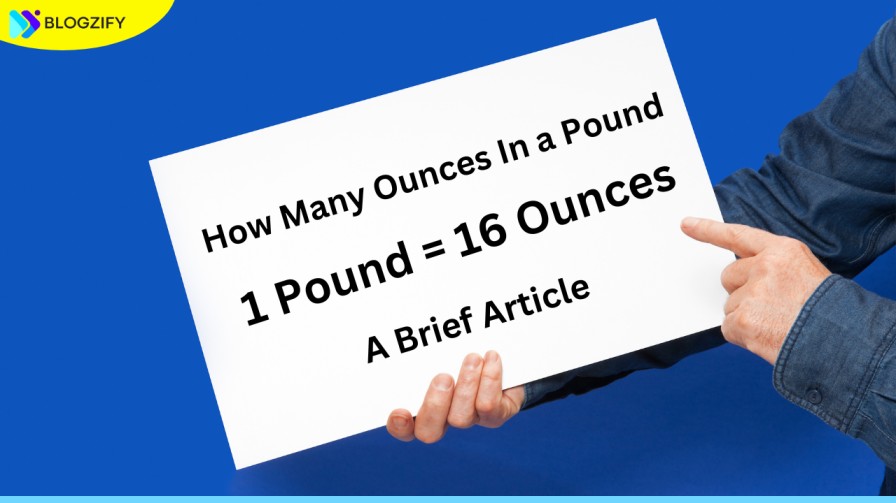Introduction
In the realm of weights and measures, understanding the conversion between ounces and pounds is essential for a variety of applications, from cooking to shipping, and beyond. This article will delve into the details of how many ounces are in a pound, exploring its applications, historical context, and practical tips to master this conversion.
The Basics of Ounces and Pounds
Fundamentally, the inquiry revolves around the question, “How many ounces are in a pound? revolves around understanding two primary units of weight in the imperial system. One pound is universally recognized as equivalent to 16 ounces. This conversion is fundamental in various fields, including cooking, grocery shopping, and more.
Culinary Applications: Precision in Ingredient Measurements
In the culinary world, precision is key. Whether you are a home cook or a professional chef, understanding the conversion of ounces to pounds is crucial for recipe accuracy. For instance, many recipes call for ingredients in ounces or pounds, and the ability to convert these measurements ensures the success of a dish.
The Historical Perspective: From Ancient Weights to Modern Measures
The history of the ounce and pound dates back to ancient civilizations. Originally derived from the Roman monetary system, the term ‘ounce’ was linked to one-twelfth of a Roman pound. Over time, these measures evolved, but the fundamental relationship between ounces and pounds remained a constant.
Practical Tips for Conversion
To convert pounds to ounces, you just need to multiply the pounds by 16. Conversely, to find out how many pounds are in a given number of ounces, divide the ounces by 16. These simple calculations can be invaluable in daily life, from measuring ingredients to calculating postage for a package.
Understanding Ounces and Pounds in Different Contexts
It’s important to note that ounces can refer to both weight (avoirdupois ounces) and volume (fluid ounces). While this article focuses on avoirdupois ounces, which are used for weight, understanding the context of the measurement is crucial to avoid confusion, especially in recipes and scientific calculations.
Why Accurate Conversions Matter
Accurate conversions between ounces and pounds are not just a matter of convenience; they can have real-world implications. In industries such as pharmaceuticals, precision in weight measurements can be a matter of safety. Similarly, in international trade, accurate conversions ensure compliance with regulations and standards.
Advanced Applications: Ounces and Pounds in Science and Industry
Beyond everyday use, the conversion between ounces and pounds plays a vital role in science and industry. In fields like engineering and material science, precise weight measurements are essential for research, development, and quality control.
FAQs
- What is the basic conversion between ounces and pounds?
- One pound is equivalent to 16 ounces. This is a standard conversion in the imperial measurement system used for calculating weight.
- Why is it important to understand the conversion between ounces and pounds?
- Understanding this conversion is crucial in various areas such as cooking, where recipe accuracy depends on precise measurements, and in shipping, where weight determines postage costs.
- Can ounces refer to both weight and volume?
- Yes, ounces can refer to both avoirdupois ounces (weight) and fluid ounces (volume). It’s important to know the context to apply the correct type of ounce.
- How do you convert pounds to ounces?
- To convert pounds to ounces, you should multiply the number of pounds by 16.. For example, 2 pounds would be 32 ounces (2 x 16).
Conclusion
Understanding how many ounces in a pound is more than a mere fact; it’s a fundamental knowledge that permeates various aspects of life and industry. Whether you’re cooking a meal, mailing a package, or conducting scientific research, this conversion is an essential tool in your arsenal. Also visit our another website. Thankyou so much for being here!
Discover More Blogs:
